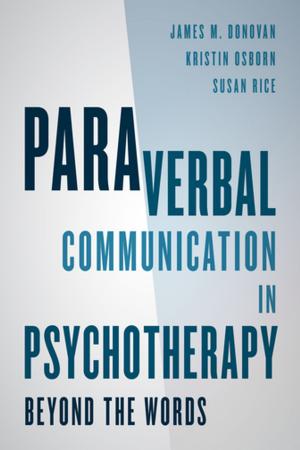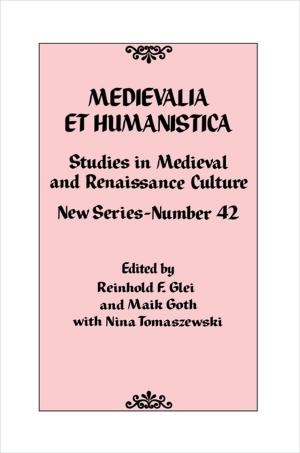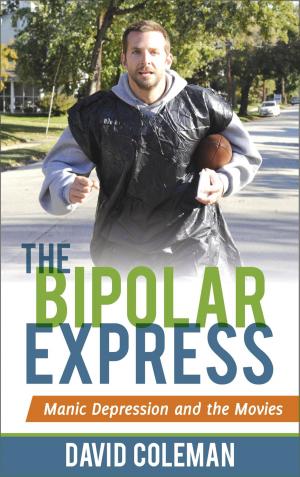Possibilities, Challenges, and Changes in English Teacher Education Today
Exploring Identity and Professionalization
Nonfiction, Reference & Language, Education & Teaching, Teaching, Teaching Methods| Author: | ISBN: | 9781475845464 | |
| Publisher: | Rowman & Littlefield Publishers | Publication: | May 24, 2019 |
| Imprint: | Rowman & Littlefield Publishers | Language: | English |
| Author: | |
| ISBN: | 9781475845464 |
| Publisher: | Rowman & Littlefield Publishers |
| Publication: | May 24, 2019 |
| Imprint: | Rowman & Littlefield Publishers |
| Language: | English |
This book focuses on English teacher educators’ experiences concerning professionalization and teacher identity. The term professionalization, itself, can be problematized (Popkewitz, 1994), as it connotes adherence to realities to professional norms that are based within particular histories. Yet, teacher educators must confront how to mentor prospective teachers into the field and how changes to the field manifest changes to what it means to be a professional.
In research about changes in English teacher education over the past twenty years, Pasternak, Caughlan, Hallman, Renzi and Rush (2017) presented five distinct foci of ELA programs that have evolved: 1) changes to field experiences within teacher education programs, 2) altered conceptions of teaching literature and literacy within the context of ELA, 3) increased adherence to standardization, 4) changing demographics of students in K-12 classrooms, and 5) increased expectations for use of technology within ELA. These foci impact how professionals in ELA are viewed both from inside and outside the profession and how they navigate these tensions in teacher education programs to define what it means to identify as an English teacher.
Throughout the book, chapter authors articulate dilemmas that focus around professionalization and teacher identity, questioning what it means to be an English teacher today. While some chapters suggest methods for increased awareness of tensions within practice, other chapters approach professionalization and teacher identity by asking what the limits of methods classes and teacher education might be in preparing ELA teachers and supporting them to remain in the profession.
Today’s political environment devalues teachers and teaching, a situation that has critics deriding the educational standards at institutes of higher education while concurrently lauding alternative programs that do not have to adhere to the same rigorous teacher certification requirements. English teacher educators are now being asked to design programs, soften requirements, and recruit and mentor teacher candidates to a profession that, in the past, certified more new English teachers than it could employ. The chapters in this book explore what it means to educate and be an English teacher educator under these conditions.
This book focuses on English teacher educators’ experiences concerning professionalization and teacher identity. The term professionalization, itself, can be problematized (Popkewitz, 1994), as it connotes adherence to realities to professional norms that are based within particular histories. Yet, teacher educators must confront how to mentor prospective teachers into the field and how changes to the field manifest changes to what it means to be a professional.
In research about changes in English teacher education over the past twenty years, Pasternak, Caughlan, Hallman, Renzi and Rush (2017) presented five distinct foci of ELA programs that have evolved: 1) changes to field experiences within teacher education programs, 2) altered conceptions of teaching literature and literacy within the context of ELA, 3) increased adherence to standardization, 4) changing demographics of students in K-12 classrooms, and 5) increased expectations for use of technology within ELA. These foci impact how professionals in ELA are viewed both from inside and outside the profession and how they navigate these tensions in teacher education programs to define what it means to identify as an English teacher.
Throughout the book, chapter authors articulate dilemmas that focus around professionalization and teacher identity, questioning what it means to be an English teacher today. While some chapters suggest methods for increased awareness of tensions within practice, other chapters approach professionalization and teacher identity by asking what the limits of methods classes and teacher education might be in preparing ELA teachers and supporting them to remain in the profession.
Today’s political environment devalues teachers and teaching, a situation that has critics deriding the educational standards at institutes of higher education while concurrently lauding alternative programs that do not have to adhere to the same rigorous teacher certification requirements. English teacher educators are now being asked to design programs, soften requirements, and recruit and mentor teacher candidates to a profession that, in the past, certified more new English teachers than it could employ. The chapters in this book explore what it means to educate and be an English teacher educator under these conditions.















